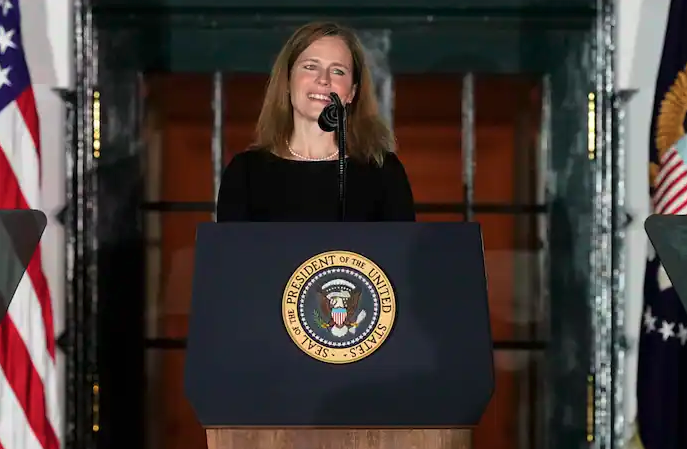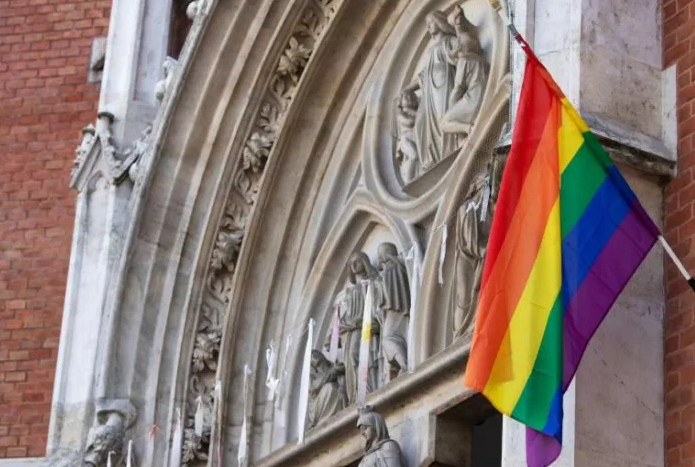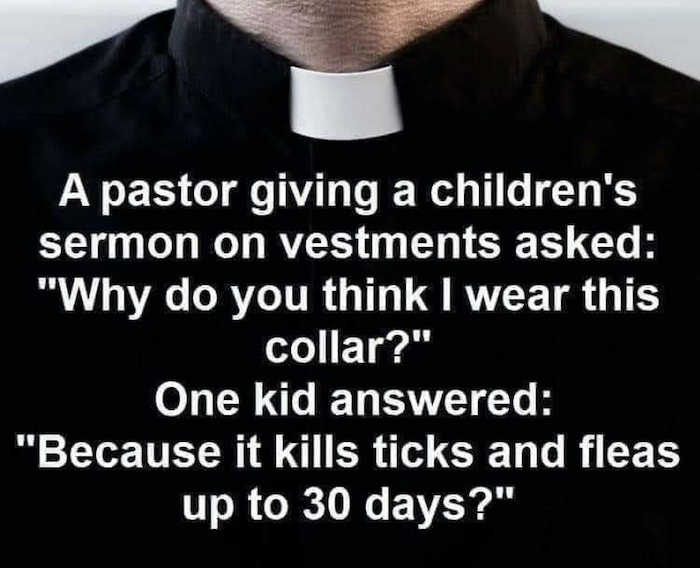
By Jack Jenkins
To Christie Leonard, working at Gospel Crusade was the perfect fusion of vocation and spiritual call, where her talents and her faith could work in tandem.
“I was doing my dream job,” she said in a recent interview with Religion News Service.
Besides providing her income, Gospel Crusade, which does international mission work and runs a conference center from its Bradenton, Fla., base, had immense spiritual significance for Leonard. Her family had attended classes at Gospel Crusade’s church, and since 2000, Leonard had worshiped at the Family Church, a religious community at the conference center, called the Christian Retreat. She cites attending there as cementing her decision to become “a follower of Christ,” and her attachment only deepened when she began working at the Christian Retreat a few years later.
Which is why, she told RNS, she felt crushed when she was fired in 2019, despite giving what she said were 15 of her “best years” to the organization.
Worse, she claims her firing had nothing to do with her work ethic or her spiritual devotion, but rather rumors surrounding her sexuality and her relationship with a co-worker.
She said the firing felt as if “God was throwing me away
Leonard is now suing Gospel Crusade, claiming her termination was driven by discrimination based on her gender and presumptions about her sexual orientation. The church has disputed her account in court, but the case is one of several that could test the reach of the “ministerial exception,” a legal workaround that exempts faith groups from nondiscrimination laws in hiring and firing as long as the employees in question are considered ministers — including, according to recent Supreme Court decisions, staffers such as Leonard who are not clergy
Like many who work for small religious organizations, Leonard juggled multiple jobs at Gospel Crusade. Initially hired as an hourly employee to help with video production, she later found herself assisting the group’s accounting team as well as working in human resources. By the time she was brought on as a salaried employee in 2017, she kept a cot under her desk for late nights spent editing video.
“I basically lived there,” she said.
About the same time, Leonard began working closely with a female colleague. According to Leonard, the two were in constant conversation and over time, she said, “we became almost inseparable.”
Their connection became a flash point, professionally and personally. Leonard said her colleague’s husband “became jealous in some ways” of their relationship. Rumors began to circulate that the two women, who Leonard said were both struggling with marital difficulties, were in a “romantic relationship or a sexual relationship.”
The colleague’s husband, who served on the church’s staff, then allegedly took his concerns to the senior pastor of the Family Church at Christian Retreat, Phil Derstine, who reached out to Leonard’s husband
Leonard insisted it was only after consulting with the two husbands that Derstine allegedly met with both women — not to talk about the situation, but to announce his decision: They could not spend any time together for 30 days. If they managed that, they could both attend a planned mission trip to Uganda in September 2018
Leonard said she and her colleague did as instructed and were able to take the trip together. But at a meeting while they were away, Gospel Crusade board members allegedly heard testimony from the colleague’s husband.
When the women returned, they did not immediately go to their respective homes. According to Leonard, her colleague went to a wedding while Leonard visited family out of state.
According to Leonard, Derstine promptly fired Leonard’s colleague but allowed Leonard to remain on staff — albeit as an hourly employee instead of a salaried one, and with a caveat: She could not move in with her colleague.< “He said, ‘I have one other condition: You cannot live with that woman,’ ” Leonard recalled, adding that he suggested she live with her brother. This time, Leonard did not comply. The two women secretly moved in together, coinciding with what Leonard described as a campaign of harassment led by Derstine and others at Gospel Crusade. “[Derstine] continued to ask me every single day that he called me, ‘Where are you living?’ ” she said. “I got text messages at all hours of the night asking me how my living situation was. I believe there were people that were following us. It was just a very stressful situation.” Allegedly at Derstine’s urging, family members contacted Leonard to inquire about the living situation. A Gospel Crusade board member allegedly confronted her to say that he knew where she lived. In early 2019, during a counseling session with Derstine’s wife, Leonard revealed a desire to live with her former colleague, noting she was now unemployed and separated from her husband. A few hours later, Derstine convened a meeting with Leonard to inform her that she was fired. Leonard said she was told she was fired for poor job performance. But she alleges that “I was having close to my best year” and that Derstine even asked her more than once after she was fired to assist with video production. Instead, Leonard believes she lost her job for very different reasons. She said Derstine hinted at larger subtext during the firing meeting, when he allegedly said the mere suggestion of Leonard moving in with her female co-worker was “a dealbreaker.” “I was fired for sex discrimination,” Leonard said. “They believed that I was in a lesbian relationship with my former co-worker.” The U.S. Equal Employment Opportunity Commission agreed: That same year, they found probable cause that she had been discriminated against based on her gender, as well as the perception that she was involved in a same-sex relationship. Gospel Crusade declined to settle, and Leonard filed her lawsuit in federal court in October 2019, with the help of the Time’s Up Legal Defense Fund. “The worst part for me is that these were my spiritual leaders . . . and that somehow God was throwing me away,” Leonard said, “that he didn’t love me, or value me or my service.” Gospel Crusade did not provide on-the-record responses to requests for comment. However, court documents show lawyers for the group repeatedly denying Leonard’s allegations, arguing that text messages and emails she supplied as evidence were taken out of context. The court documents also feature Gospel Crusade invoking the “ministerial exception,” a focus of a landmark 2012 U.S. Supreme Court case, Hosanna-Tabor Evangelical v. EEOC.
That case featured a dispute between a school affiliated with the Lutheran Church-Missouri Synod and a former teacher who was fired when she attempted to return to work after being diagnosed with narcolepsy. The court sided with the school, which argued that the teacher was a minister and thus exempt from nondiscrimination laws. The ruling was seen as expanding the ministerial exception to include religious workers who are not ordained clergy.
Since 2012, religious institutions have invoked the ruling to justify the firing of LGBTQ employees. In 2019, a Catholic high school in Indiana fired a gay teacher after the Archdiocese of Indianapolis threatened to strip the school of its affiliation with the church. Explaining why he believed the fired teacher’s spouse — who taught at a nearby Catholic school — should also be fired, the archbishop argued the archdiocese “recognizes all teachers, guidance counselors and administrators as ministers.”
But the ministerial exception is complicated by the Supreme Court’s 2020 decision in Bostock v. Clayton County, in which the majority argued that Title VII of the Civil Rights Act of 1964 — which prohibits hiring discrimination based on race, color, religion, sex and national origin — also protects employees against discrimination because they are gay or transgender.
In his majority opinion, Justice Neil M. Gorsuch argued that the court is “deeply concerned with preserving the promise of the free exercise of religion enshrined in our Constitution,” and suggested that laws such as the 1993 Religious Freedom Restoration Act might allow religious groups to avoid nondiscrimination statutes and “supersede Title VII’s commands in appropriate cases.”
The arrival of Justice Amy Coney Barrett has potentially tipped the balance of the court toward a more conservative understanding of religious liberty and the exception.
Cases such as Leonard’s may be used to reconcile the Tabor and Bostock rulings. “If [religious] organizations are allowed to simply do whatever they want to when it comes to employment,” said Kevin Sanderson, Leonard’s attorney, “and aren’t held to the same standards as other employers despite what our laws say, you could have millions of people who are really unprotected in the workplace.”
Leonard remains concerned about others who could face her same situation. “What scares me a little bit is the idea that this ministerial exception — that they’ve now decided I’m a minister — has a growing reach to affect more people,” she said. “Because [Derstine] would say every believer is a leader.”
She also expressed deep frustration with what she described as the church’s patriarchal bent. “Somehow, a room full of these guys get together, say they speak for God and get to treat people however they want?”
The whole ordeal has frayed relationships with friends and family and taken a toll on her faith, but Leonard managed to find a new religious home. She now attends an Episcopal Church, where she says she feels supported and where the priest appears to be “completely different” than the “businessman” she said she worked for at Gospel Crusade.
She also takes comfort in the Episcopal Church’s long-standing support for LGBTQ rights: Should a situation like what happened at Gospel Crusade arise at her new church, she feels more protected.
“That denomination would stand by me,” she said.
Complete Article ↪HERE↩!




